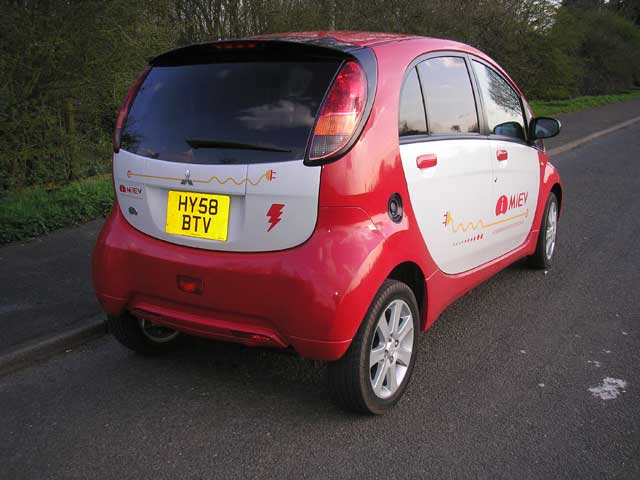Mitsubishi I-Miev

Your support helps us to tell the story
From reproductive rights to climate change to Big Tech, The Independent is on the ground when the story is developing. Whether it's investigating the financials of Elon Musk's pro-Trump PAC or producing our latest documentary, 'The A Word', which shines a light on the American women fighting for reproductive rights, we know how important it is to parse out the facts from the messaging.
At such a critical moment in US history, we need reporters on the ground. Your donation allows us to keep sending journalists to speak to both sides of the story.
The Independent is trusted by Americans across the entire political spectrum. And unlike many other quality news outlets, we choose not to lock Americans out of our reporting and analysis with paywalls. We believe quality journalism should be available to everyone, paid for by those who can afford it.
Your support makes all the difference. Price: £23,900 after subsidy
Top speed: 81mph Range Up to 100 miles
CO2 impact: Depends on fuel used at power station
Best for: Good, clean (subsidised) fun
Also worth considering? BMW Mini E, Nissan Leaf, Smart Fortwo Electric Drive
"I have seen the future, and it works." That was American journalist Lincoln Steffens' verdict on his experience of the Soviet Union in 1921, and I'm tempted to say the same thing about the Mitsubishi i-MiEV, one of the best of the emerging crop of electric cars from the big manufacturers.
Like most of its rivals, the i-MiEV is based on an existing design, rather than being a purpose-built electric vehicle (EV), but here, the starting point, the Mitsubishi i, a stylish, ultra-compact four-seater for the Japanese market, is better than most. The i's engine is squashed between the rear wheels and Mitsubishi has managed to pack the i-MiEV's electric drive-train into the same small slot, which means that passenger and luggage space are unaffected by the conversion (a big plus compared with the Mini E, which loses its rear seat to batteries).
On the road, the i-MiEV is a smooth and zingy performer, even in battery-saving "Eco" mode, with a lowish top-speed more than offset in real-world conditions by snappy acceleration. I loved it. Even limited range, the biggest drawback of EVs, shouldn't be too much of a problem on a small car such as this, as it's likely to be used for short journeys.
Anyway, most people would say Steffens turned out to be wrong about the Soviet Union. One of the reasons it eventually failed was its resolute refusal to recognise that markets generally do a better job of deciding what to produce, and what price to sell it at, than a man with a plan sitting in an office in Moscow. And yet if we rely on market signals alone to deal with climate change, there's a risk we won't adopt cleaner technologies quickly enough, and the i-MiEV is a case in point.
EV components are still expensive and Mitsubishi initially pitched the new car at £38,699. At that price, few drivers would have made the switch; the truth is, manufacturers and governments will have to prime the pump if EVs are going to take off. So Mitsubishi has suddenly decided to make the i-MiEV 10 grand cheaper, apparently in response to Nissan's aggressive pricing for its purpose-designed Leaf EV, while Business Secretary Vince Cable – not so much a man with a plan as a man with a cheque book – will give you a £5,000 subsidy as well. At £23,990, given electric cars' low running costs, the i-MiEV starts to make sense. I have seen the future and it's going to be fun.
Join our commenting forum
Join thought-provoking conversations, follow other Independent readers and see their replies
Comments